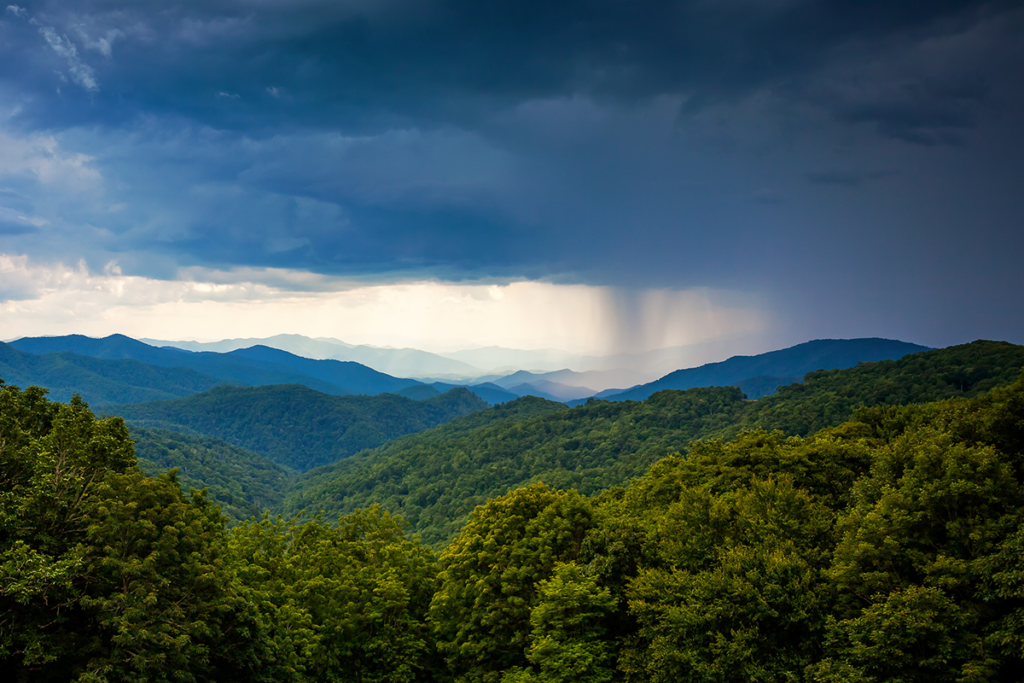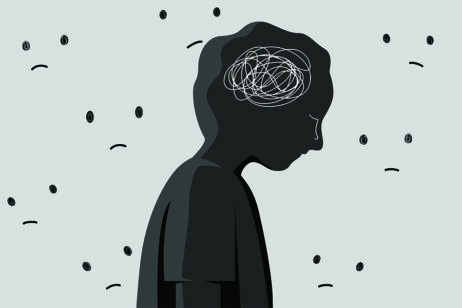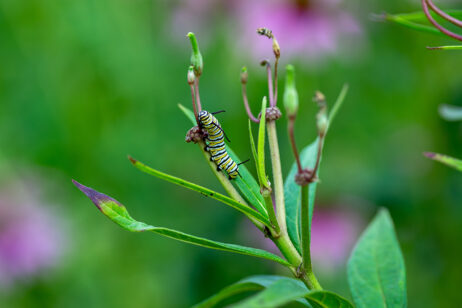The main purpose of this ongoing blog will be to track planetary extreme, or record temperatures related to climate change. Any reports I see of ETs will be listed below the main topic of the day. I’ll refer to extreme or record temperatures as ETs (not extraterrestrials).😉
Main Topic: Dealing with Helene Five Months After Its Landfall
Dear Diary. Every few weeks we need to check in on survivors of big climate crisis related events such as the Southern California fires and flooding in the southern Appalachians from Helene. Today we will concentrate on survivors from Helene.
As a society our attention span is short and getting shorter when it comes to tragedies. News media will concentrate on a recent mass shooting or large fire one day and cover the next in subsequent days while dropping coverage on the prior big event. That does leave people who survived any horrific event hanging. The U.S. public has some great volunteers that help over a long term in conjunction with FEMA (the Federal Emergency Management Association that is under fire from Trump), however.
Admittedly, I have had problems with mental health in the past, but I got help, so that personal issue is under control ATTM. So, I can empathize how much depression and anxiety are a big part of people’s psyche who have survived fires and floods, although I can’t imagine what it is like to lose a home containing everything I own and precious memories.
Here is more about how survivors of Helene are coping from Moms Clean Air Force:
Mental Health and Climate Change: When the Earth Moves—5 Months After Hurricane Helene
February 25, 2025

A storm rolls in across the Appalachian Mountains in Asheville, North Carolina.
When Brita Nordgren was in college in Western North Carolina, the region experienced what at the time was called a hundred-year flood. The remains of Hurricane Frances soaked the area in September 2004, causing heavy damage to mountain towns like Asheville, Canton, and Clyde.
Just 20—not 100—years later, Hurricane Helene crashed into the North Carolina mountains in what was the deadliest hurricane to hit the U.S. since Katrina. Nearly five months after the storm, Brita and her family (her husband, 10- and 12-year-old daughters, and a family dog) are still processing what happened to their community. Emotions about the storm come in waves. They’re still surrounded by visual reminders of the disaster: beloved landmarks are gone; the power lines near their Weaverville home are still held up by rope and caution tape.
I’m struck by the undercurrent of surprise in Brita’s voice throughout our conversation: “Everything about the experience of Helene has been unexpected,” she tells me.
The first few days
The day of the storm, Brita and her daughters hunkered down at home: “Our power went out, and the girls and I sat in the living room watching the lightning and the wind. It was really exciting, like when there’s snow.”
And in the days that immediately followed—power still out, and cell service and water down too—neighbors came together to share resources and community. There were cookouts, a neighbor who delivered bowls of melting ice cream, and a sense of connection and care. Because there was no cell service or power, Brita and her neighbors didn’t understand the scope of the damage to the region beyond what could be discovered on foot. But when community members did begin to venture out, the devastation they discovered was unthinkable. The storm had fundamentally altered the terrain of Western North Carolina, taking over 300 lives across multiple states. Buncombe County, where Brita’s family lives, sustained the highest death toll of all.
“This doesn’t make any sense”
In 2023, nearly 2.5 million people in the U.S. were displaced by extreme weather, with socially vulnerable groups—like the elderly and Black and Latino families—hardest hit. This number was almost certainly higher in 2024, a year that saw 27 separate billion-dollar disasters in the U.S. alone. Hundreds of thousands of people were displaced by Hurricane Helene. Brita and her family were among them. Once the scope of the storm’s damage became clearer, they did what many families with children did if they could: they left Western North Carolina for safer ground and running water.
Interstate 40, North Carolina’s main highway, had sustained significant storm damage and was closed. The trip to Brita’s parents’ home in Durham, North Carolina, took seven hours, instead of the usual three. When they arrived in Durham, they plugged back into a frantic news cycle—checking in on loved ones back in the mountains and wondering whether their lack of response meant that their power hadn’t been restored or something more sinister. Though Brita was grateful for her family’s access to safe shelter in the aftermath of the storm, her emotional experience of displacement was infused with a complex mix of cognitive dissonance, disorientation, grief, and guilt. She describes a moment running an errand with her daughters:
“I took my girls to Target to get a few things that we had left at home. My 12-year-old turned to me and said, ‘This is not OK. This doesn’t make any sense that we’re here, and able to pick out shampoo.’ She was articulating the disconnect she was understanding in her 12-year-old brain: here we are with 900 options for shampoo when people back home are in a completely different reality. And then she said, ‘I just want to tell everyone we see in here what we’ve been through.’ Feeling everything really deeply and then all of sudden being in ‘normal’ life again was a lot for her. It was a lot for me, but somehow seeing it through my daughter’s eyes was particularly poignant.”
There is no manual for navigating life when you’ve been displaced by a disaster, but nothing about the experience went the way Brita expected it to. She managed to find a temporary school placement for her daughters and a temporary field placement for her own graduate school program in occupational therapy. Yet navigating the necessary bureaucracy of paperwork while grieving intense trauma was difficult. Brita also felt the weight of being away from her Western North Carolina home as neighbors and community members coped with the direct impacts of the disaster. “I felt tremendous guilt,” she says, “for not being fully present in the immediate weeks and months afterward.”
“What are you going through?”
Thankfully, the Nordgrens’ home wasn’t structurally damaged during the storm. Eventually, they were able to return, unlike many Western North Carolinians—but what they returned to wasn’t the same landscape they left.
“Things are not the same, and they won’t be the same. Parks are built on floodplains. Soccer fields are built on floodplains. Hiking trails are built on floodplains. A lot of these places where people gathered to enjoy nature and be in community are the places that are not being rebuilt. Both of my girls play soccer, and there are no soccer fields—it’s just part of the reality of what happened. It’s continual waves of change that I didn’t foresee continuing to echo out.”
Brita tells me she finds a strange comfort in the altered topography of Western North Carolina. The fact that the earth actually moved feels validating, helping her to make sense of her own altered inner terrain. When I ask her what kind of support helped—and what would have helped—in the aftermath of the storm, Brita says she wishes there had been more time after the disaster to move at a humanizing, gentle, patient pace—and less pressure to hurry back to a “normal” that no longer existed. Instead of rushing in to share their own stories or trying to make everything OK, she wishes more people would have simply asked, “What are you going through?” and just listened.
It’s a question nearly all of us will need to hold close in the coming years as we navigate a world whose terrain is changing in so many ways. In the moments when we’re struggling to know how to support loved ones through hurricanes, wildfires, and the storm of sociopolitical turmoil, maybe we can trust that a listening ear and simple question are enough: What are you going through?
Related Posts
Mental Health & Climate Change: Why We Must Transform Mental Health Care for Today’s Children
When her child developed a rare neuropsychiatric disorder, one mom quickly learned how the mental health care system in the U.S. works for families in crisis—or rather, doesn’t.
Mental Health & Climate Change: Caterpillars, Climate Grief, and a New Report
Climate change is increasingly impacting our mental health in numerous ways. A new report offers an overview of the most current research on how climate change is impacting the mental health of children and youth.
What New Research Tells Us About Climate Change and Parents’ Mental Health
A mom researches the impact of climate awareness on parents’ mental and emotional well-being, and shares it here…
Here are more “ETs” recorded from around the planet the last couple of days, their consequences, and some extreme temperature outlooks, as well as any extreme precipitation reports:
Here is More Climate News from Wednesday:
(As usual, this will be a fluid post in which more information gets added during the day as it crosses my radar, crediting all who have put it on-line. Items will be archived on this site for posterity. In most instances click on the pictures of each tweet to see each article. The most noteworthy items will be listed first.)


